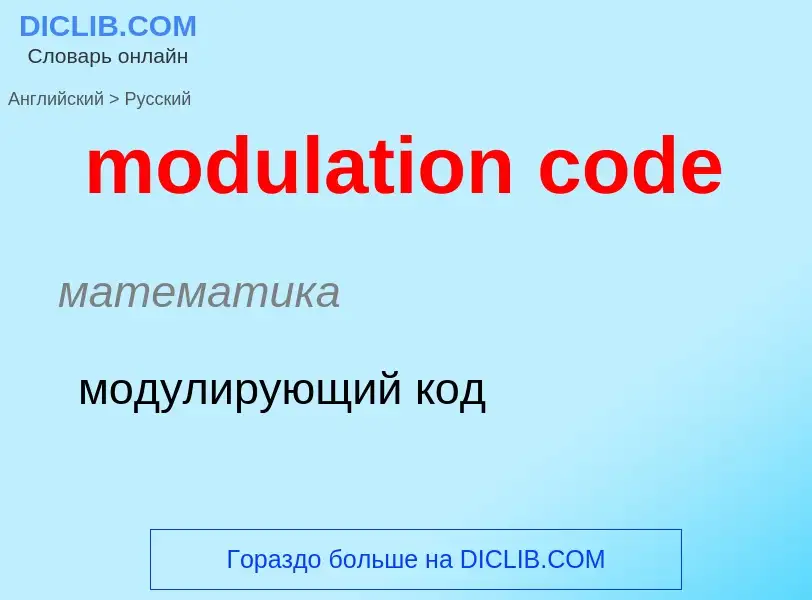Μετάφραση και ανάλυση λέξεων από την τεχνητή νοημοσύνη ChatGPT
Σε αυτήν τη σελίδα μπορείτε να λάβετε μια λεπτομερή ανάλυση μιας λέξης ή μιας φράσης, η οποία δημιουργήθηκε χρησιμοποιώντας το ChatGPT, την καλύτερη τεχνολογία τεχνητής νοημοσύνης μέχρι σήμερα:
- πώς χρησιμοποιείται η λέξη
- συχνότητα χρήσης
- χρησιμοποιείται πιο συχνά στον προφορικό ή γραπτό λόγο
- επιλογές μετάφρασης λέξεων
- παραδείγματα χρήσης (πολλές φράσεις με μετάφραση)
- ετυμολογία
modulation code - translation to ρωσικά
математика
модулирующий код
['pʌlskəudmɔdju'leiʃ(ə)n]
общая лексика
ИКМ
импульсно-кодовая модуляция
радиотехника
импульсно-кодовая или кодо-импульсная модуляция
Ορισμός
Βικιπαίδεια
Differential pulse-code modulation (DPCM) is a signal encoder that uses the baseline of pulse-code modulation (PCM) but adds some functionalities based on the prediction of the samples of the signal. The input can be an analog signal or a digital signal.
If the input is a continuous-time analog signal, it needs to be sampled first so that a discrete-time signal is the input to the DPCM encoder.
- Option 1: take the values of two consecutive samples; if they are analog samples, quantize them; calculate the difference between the first one and the next; the output is the difference.
- Option 2: instead of taking a difference relative to a previous input sample, take the difference relative to the output of a local model of the decoder process; in this option, the difference can be quantized, which allows a good way to incorporate a controlled loss in the encoding.
Applying one of these two processes, short-term redundancy (positive correlation of nearby values) of the signal is eliminated; compression ratios on the order of 2 to 4 can be achieved if differences are subsequently entropy coded because the entropy of the difference signal is much smaller than that of the original discrete signal treated as independent samples.
DPCM was invented by C. Chapin Cutler at Bell Labs in 1950; his patent includes both methods.


